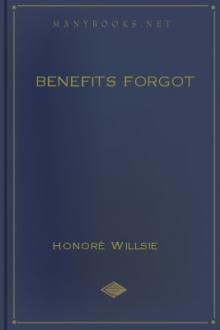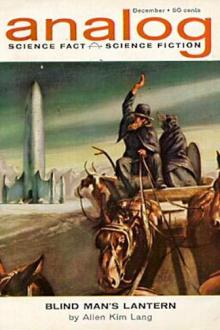Morningstar/Alignment, Keith Trimm [feel good novels txt] 📗

- Author: Keith Trimm
Book online «Morningstar/Alignment, Keith Trimm [feel good novels txt] 📗». Author Keith Trimm
Once again, I believe that most people have in inaccurate perception of the passage of time. Time is not a river. It does not flow, and you cannot travel to and from as you wish. The distant past is just as close to you as the recent past. Your future is just as close to you as the present. There are no destinations in time; there is just our human explanation of a concept, which we have no true idea of. We have to make sense of it in a way we can understand. How can we possibly understand the concept of infinity? Time has no beginning, nor end. Time is here and now, we are in it. The age of the dinosaurs is just as close as the age of man. The creation of the universe is just as close as the current day.
We try to visualize the many births of the universe, seeing mass explosions of matter creating the area we call space. We tend to think of it as something far and away. So far away it is beyond our comprehension. Time is not just a series of events caught on film to review with a beginning middle and end. It is here and now. It is a sliver of existence. If you could reach out of it you could touch the gas clouds that formed our galaxy as easily as touching the robes of Jesus.
Infinity is an easy concept to understand if you release the outdated rules of science as man has envisioned it. As far as time is concerned, time is not infinite. There was no beginning and there will be no end. Man’s yardstick was a good tool to help explain this concept but it is now time to throw it away and rethink the laws of physics. People justify God by saying, "Something can’t come from nothing." The answer is that there never was "Nothing". Matter was not created; it has always been here. If you throw away the yardstick and stop thinking of time as a river it will start to make sense.
You may ask then, how do we explain the aging process of the universe? Plants grow, changing shape and color showing a definite difference from month to month, and year to year. Animals grow old, reproducing in order to continue the line. If there is no such thing as time then why is there a physical change we can observe in the world around us. To answer the question you must realize that aging is the process by which matter and energy change physical from, at a consistent or inconsistent rate.
This rate will be incorrectly assumed as the concept of time, because different objects do age at different rates according to the speed they are traveling in relation to each other. Moving objects age at a lesser rate than stationary objects. By this time you will think that I have contradicted my first statement about the concept of time. I have not." Dr Rhine said pointing his finger to the ceiling, not taking his eyes off his manuscript. "My argument is that objects do age, it is just that we humans do not comprehend aging and have created a theory about it called time, in order to explain it.
With this new understanding, it is then possible to be able to move through the aging process. I will call the process time in order to make it more understandable. As I stated before, aging has different rates for different objects which makes it possible to be able to travel forward at a different pace. If you slow down and the world around you continues at your old rate, it would appear you were traveling forward.
To those around you it would appear you have frozen in time. If you met up again at a later moment it would appear as though you traveled forwards in time. In fact all you have done is slow your aging process.
The physical body one once occupied in 1956 no longer exists. The Earth at that point of aging is not stored somewhere to be retrieved at a later time. Once something has passed a certain point in the aging process it has ceased to exist. We can record light waves of the period on film and record sounds on tape; this is but a collection of images and not the object itself. The film itself will age and turn yellow and crack eventually returning to the elements which made it.
It is now that we should rethink and reexamine how we perceive the theories of physics laid down centuries ago. At an earlier age, supernatural explanations were used along with scientific theories in order to understand the physical world around us. We no longer believe the world is flat and that the Earth is the center of the universe. Many of these outdated ideas were created at the same age as the discovery of gravity and electricity. At one point it was believed that man could not fly, but we know this now to be untrue. Witches were created to explain death and disease, and black cats were considered evil. These concepts of magic are from the same time period as the people who first created many of the scientific theories we think of today as fact. The problem with this thinking is that black cats are not evil, and many of these facts are untrue.
I can believe in the concept of time if it is used only as a measuring tool. A way of placing events into history in relation to other events. On paper we can establish a frame of reference using plotting points of years and months. This is still plagued with the problem that different objects do age at different rates, but since the rate is so minimal it can be overlooked for recording purposes. If we were interstellar travelers we would need one calendar for us, and one for all of the places around us. Since we travel little in comparison to each other, the aging difference is almost undetectable, maybe a few minutes over a lifetime." Dr. Rhine stated.
The class was dismissed early, allowing the professor to his office where he could make some typographical corrections. It was now lunch break.
Two hours later
The doctor moved his mouse button to the file box, saving the document to his hard-drive. Clicking on the print icon, he slid back across the room in his office chair to the printer, flicking the unit to the on position. A buzzing sound indicated the printer was warming up and soon out popped a hardcopy of the paper he had read to his students. It always seemed easier to proof the documents on real paper verses reading it off the screen. He had been working for weeks on this paper with the deadline closely approaching. He was to submit the report for approval the next day and he wanted the opinion of his colleagues in the science department before he sent it off. If it were accepted it would be printed in the university scientific journal.
Dr. Rhine was under the same pressure to have his work published as any other college level professor knowing well it was "publish or perish". If you weren’t creating new ideas and publishing them your career as a teacher could be shortened greatly. A subject very close to his heart inspired his current paper. For the concept of time and time travel were subjects he had been interested since boyhood. He had theorized that time travel was an impossibility of physics and the fascination of science fiction.
He had been an instructor at the university for two years and was assigned one of the smallest offices in the science department. He called it "the closet" and for good reasons. It was narrow and long and could only be accessed by way of another adjoining office. Although he had been there almost three years, he was still one of the newest faculty in the department. The man who’s office he walked through to get to his was only a year in seniority and only had a slightly larger office.
After proofing the paper and reading his students reviews, he looked through the glass that separated his office from his neighbor seeing him sitting behind his desk. "I need a second opinion," he thought to himself walking to the other room. Professor Alex Parsons, a rather short unattractive man in his fifties occupied the other office and was currently buried in the Opinion page of the local paper when Dr. Tony entered the room.
"What’s the crisis today Doc?" Tony asked.
"Alphabetical order or by importance," he replied, eyes glued to the paper.
"Sounds like more than I care to deal with…uh, would you consider doing me a favor?" he, asked. "I need to have my submission critiqued for the Journal, and I was wondering…"
"Why waste your time…no one really reads those things," Alex replied.
"I know," Tony said. "But I think I have some good points, and was actually interested in your opinion." Alex paused and took a deep breath. He set down his newspaper and folded it in a haphazard manner.
Tony took notice of the front cover headlines concerning a story about the abduction and murder of several coeds from the University. One of the names seemed vaguely familiar to him. He bent over to take a closer look when Alex interrupted pulling the paper away.
"Sure…just leave it on my desk, I’ll give it a once over," Alex said. "Are you still on that kick about time, and the meaning of the universe crap?" he asked in a sarcastic tone.
"Yeah, at least I have a hobby, all you do is put in your time around here, waiting for retirement," Tony said jokingly.
"I think you get a kick out of offending the Christians," Alex said.
"I just tell it like it is, if they want to believe in tall tales and fables, it is there own business. God is a number you know," Tony said.
"Don’t be too sure of yourself professor. You are just dealing in theories, and yours is no better than anyone else’s," Alex replied
"I have science to back me up. Reliable, repeatable, provable science."
"Your so called science is far less reliable as you think."
"How can you say that when you yourself are a teacher of science?"
"As a man of science and a teacher I must realize that we are dealing with theories and not facts. No one was around to record the beginnings of life," Alex said confidently.
"Yes, but man was around when Jesus Christ walked the Earth, and man still endowed him with supernatural powers," Tony said. "Man recorded Jesus’ work and failed to make an accurate journal of his life. He has become the object of fables and fairy tales."
"You may find out different one day young man," Alex said smugly.
"I just might," Tony replied and returned to his office.
Tony glanced up to the clock on the wall. It was forty-five minutes till his next lecture and he had to prepare. He sifted through the large stack of papers on his desk and tried to make sense of his lesson plans. Today’s lesson was on the formation of the planets and the force of gravity and inertia that holds them all in orbit. Astronomy was also one of his favorite subjects and taught it with enthusiasm.
A familiar voice from the science secretary piped over his intercom. "Professor Rhine…there are a couple of men here in my office that would like to speak with you." She said, "Shall I send them in?"
He again glanced up at the clock and pressed the communication button. "Yes Mary, send them on in," he replied. "What now?" he thought. "I hope I’m not in trouble. Probably some salesman were here to





Comments (0)